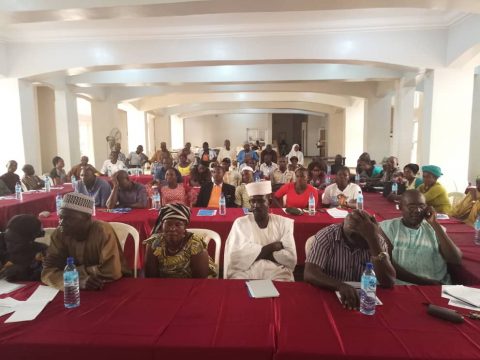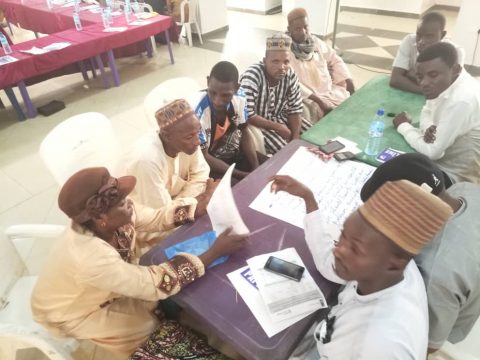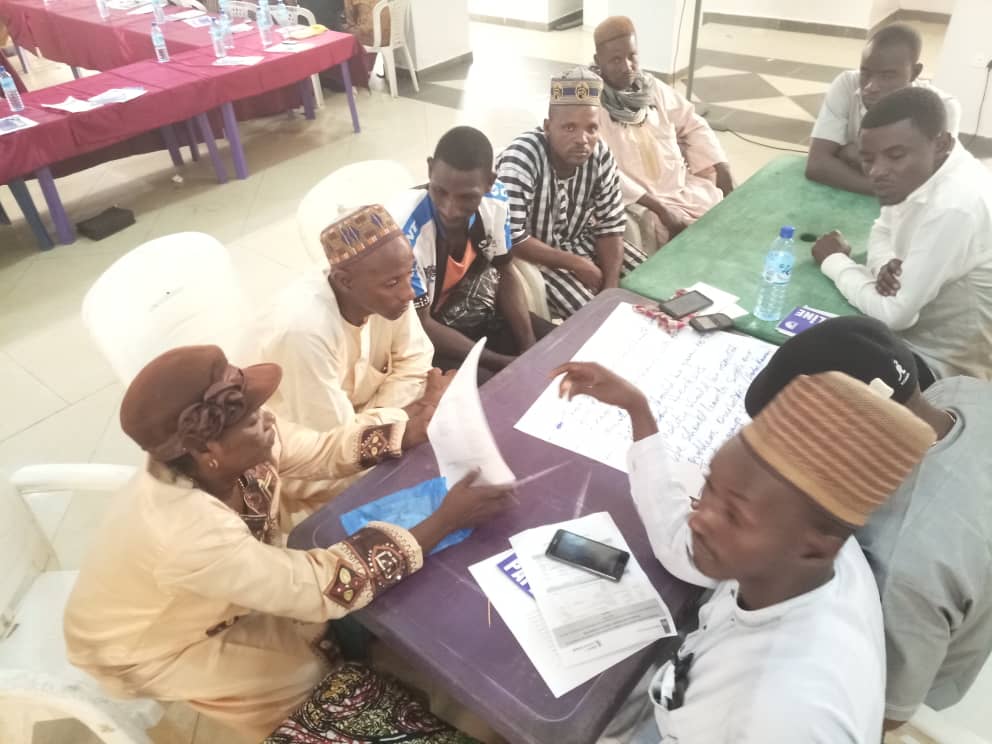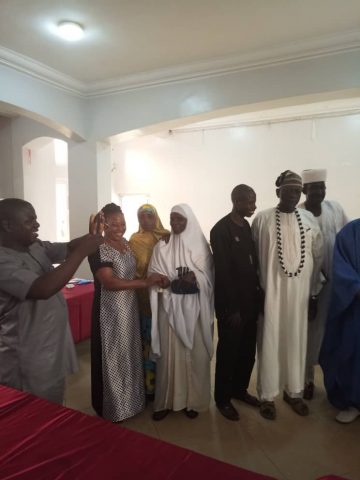From Msughshima Andrew, Makurdi
Over the years, in most parts of the country, herders and farmers have been at dagger drawn over land; for grazing and agricultural purposes. In Benue, the situation is not different. Despite concerted government efforts, conflicts between livestock and crop farmers have continued unabated with both parties incurring unquantifiable loses in both human lives and properties.
In its continuous efforts to ensure peaceful coexistence between farmers and herders in Benue state, Search For Common Ground, an NGO, has brought the two parties to a discussion table.
The meeting was an inter dialogue forum which brought together farmers and herders from Guma Local Government Area of the state.
The inter dialogue meeting also had in attendance distinct groups to dialogue, highlight keys conflict issues faced by the groups, address and analyse them and develope joint solutions to prevent violence not only in Guma but in other parts I the state ravaged by the crisis.
Our Correspondent reports that both farmers and herders numbering over 70 expressed joy at the peace initiative describing it as a welcome development.
They said living in Benue state over the years, their families have shared same facilities like schools, markets, hospitals among others, hence the need for peace.
They agreed that there was need for peace among them stating that the crisis between them have always been fuelled by unscrupulous elements among them.
Speaking at the meeting, both farmers and herders identified major causes of the conflits.
While the herders said rustling and killing of their cattle by farmers was the major cause of the conflict, they also accused security operatives of taking side and threatening to kill their cattle without any reason.
The herders further blamed inadequate awareness and alternatives for herders before the anti-open grazing law, lack of patience and tolerance on both sides as well as lack of trust as reasons for the crisis, farmers said it was lack of unity, oneness, unforgiveness and shared bitterness of the past and wrong method or approaches in conflict handling.


The herder group also complained that farmers have treated them like second class citizens because they believed that they are more educated so they take the herders for-granted and whenever there is a conflict between them, they report herders to security operatives.
The farmers also had complaints which includes that the headers have carried out unprecedented violence across the state killing more farmers especially in Mbabai, Cambe and other Communities in Guma LGA.
The farmers also lamented wanton destruction of farm products/inputs and crops by herders, rape, displacement of people and continuous fear of going to the farm.
‘Our children cannot go to school because of fear of being killed. There is hunger and poverty across all the affected communities. In Mbadwen community in particular, there is destruction of schools, clinics and churches by herders.
They also named misinterpretation of information as contained in the anti open grazing law, climate change, negative inducement by external factor and politicians, inclusion of foreign herders into the community (Bokoloji) and language barriers.
However, at the end of the meeting, both parties recommended that farmers and herders should provide platforms in addressing the above issues.
The herders who urged government to look into the anti-open grazing law by reviewing it called for inclusive governance, good leadership and a robust justice system appealed to government to provide them a space for cattle to graze in Guma LGA.
They said there should be trust and confidence between farmers and herders to strengthen peaceful relationship. “We should always accept faults when wrong and apologize when necessary because without peace the nation cannot move forward. Parents and youths should come together and live in peace and harmony by bringing up the children properly and letting them know that peace is paramount and has no alternative.
Farmers particularly recommended that stakeholders from both parties (Farmer & Herders) should organize a community dialogue to sensitize their peooe and proffer a solution that will bring about peace. “Media and security agencies should be involved during the meetings for safety.”
They called foe establishment of ranches across the state and not just in the state capital just as they cautioned that herders should not destroy their farms or crops.
They cautioned the youths to desist from cattle rustling and called for consistent dialogue, positive negotiation, constant enlightenment and training of community stakeholders to forestall future occurrences.
Speaking to 247ureport, Chairman of Security Architecture for Dialogue in Guma LG, Rev.Justine Sukwa said the meeting is a welcomed development.
He said both parties needed to come to a discussion table to shift grounds for the sake of peace, “so we appreciate Search a lot for this”.
Rev Sukwa who is also the chairman of Christian Association of Nigeria, (CAN) in Guma LGA said the clergy in conjunction with other civil societies have carried out sensitization in the local government to ensure that all hands are on deck for the return of peace in Benue.
Special Assistance to Governor Samuel Ortom on Herdsmen, Shehu Tambaya also commended Search for summoning the meeting saying it will compliment government efforts at bringing lasting pece to the state.
Tambaya who advised both the herders and farmers to embrace peace urged the herders to always point out and report the strangers among them. He assured them that the Ortom led government is doing everything humanly possible to ensure the peaceful coexistence of all the people living in Benue.
The Senior Program Manager, Mrs Olutoyin Falade and the State Project Coordinator for Search, Chorbe Joshua expressed happiness that the interaction changed a lot of perception leading to shifting of grounds. They said both parties have been urged to protect each other’s interest and understand that peace is the utmost.
Falade said she was confident that the dialogue will lead to permanent resolution of the conflicts.








